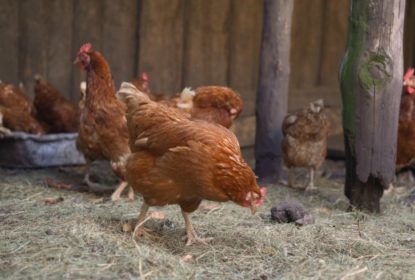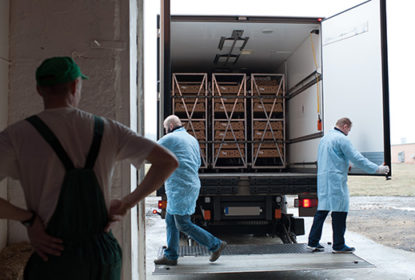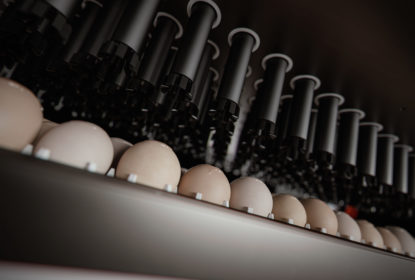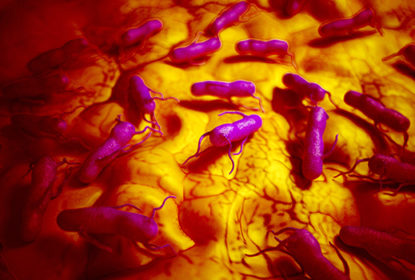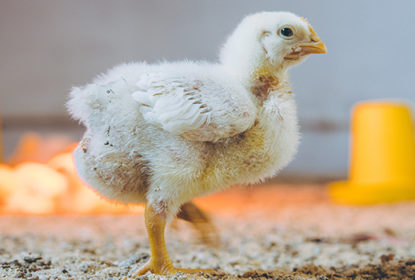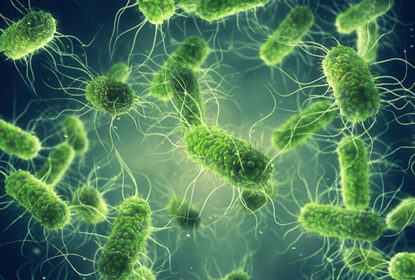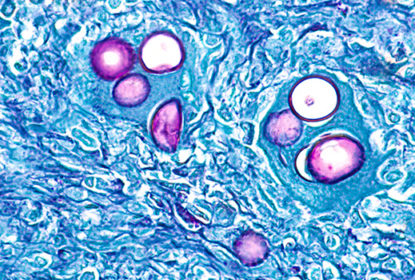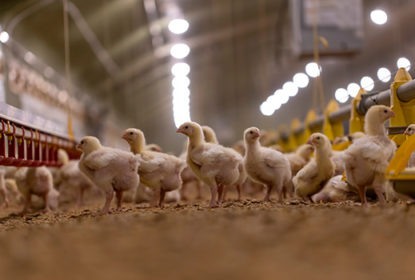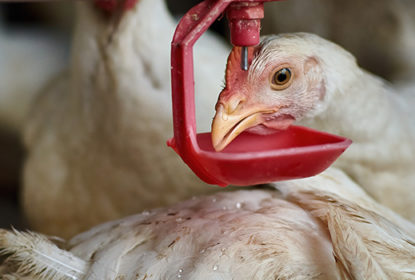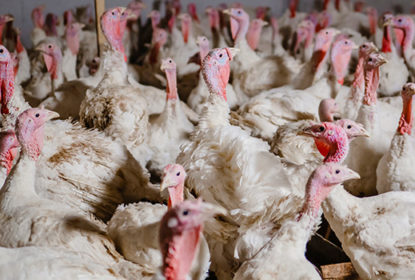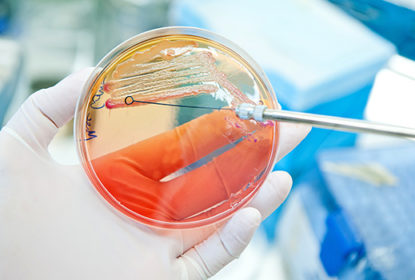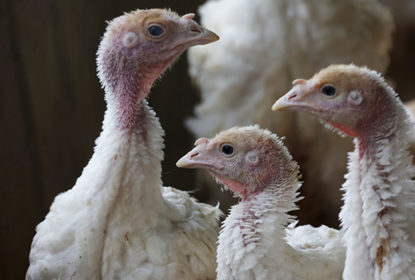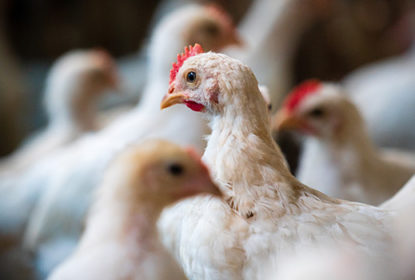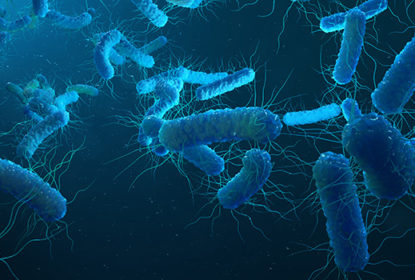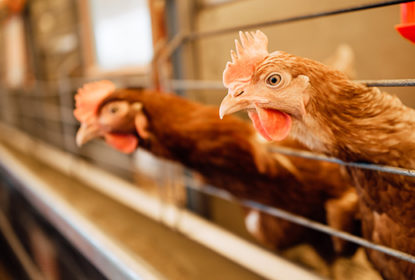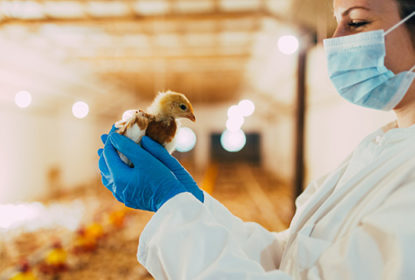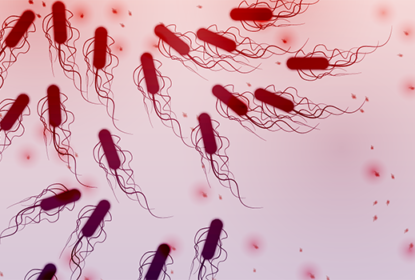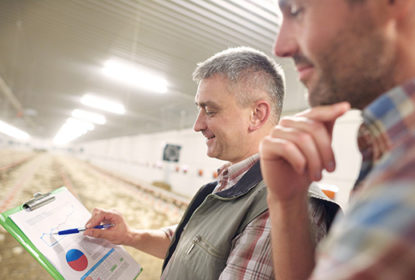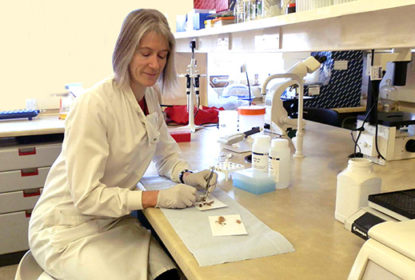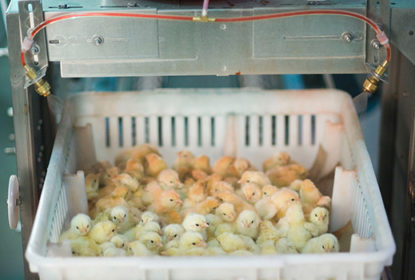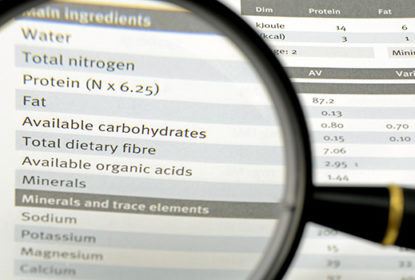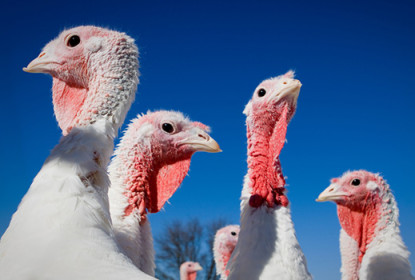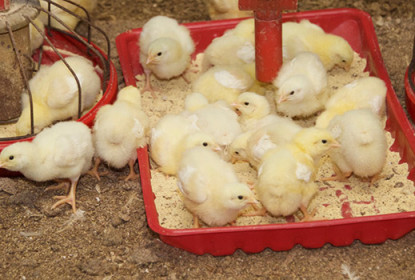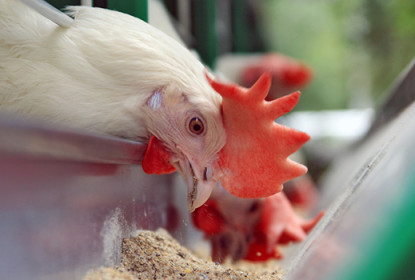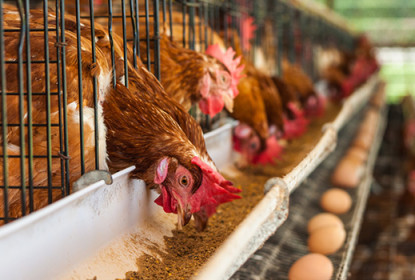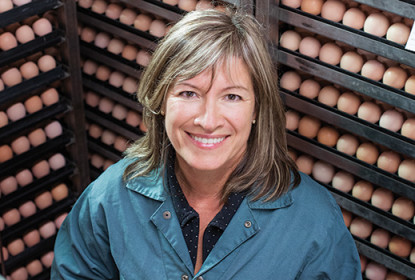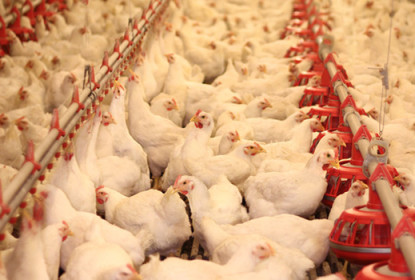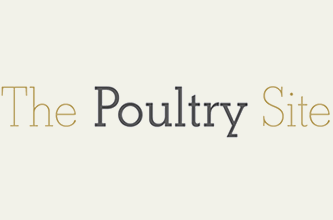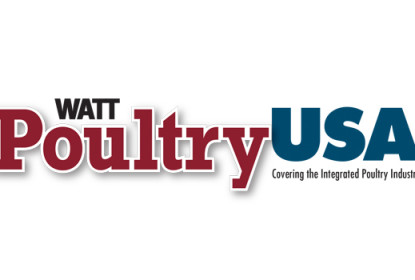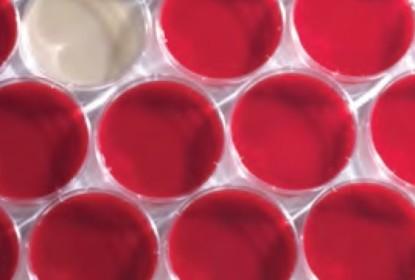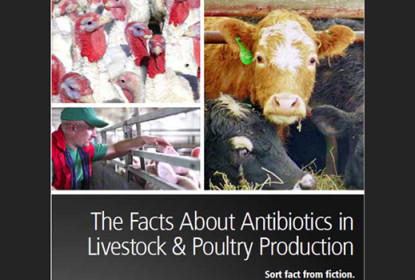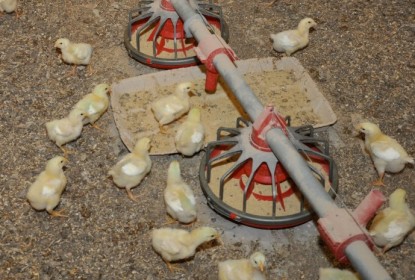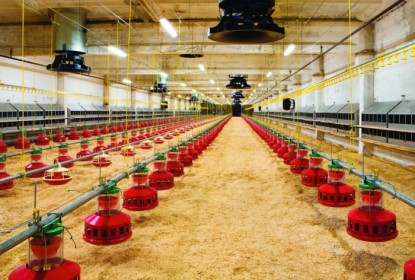Category Archive: Biosecurity, Flock welfare, Global TOP NEWS, Interviews, News, PHT GLOBAL, PHT US, Podcast, Research, TOP NEWS, Videos

Biosecurity, Flock welfare, Global TOP NEWS, Interviews, News, PHT GLOBAL, PHT US, Podcast, Research, TOP NEWS, Videos
... Circulation fans reduce severity of footpad dermatitis
Dec 22, 2022Jennifer GrullonComments Off on Circulation fans reduce severity of footpad dermatitis
Footpad dermatitis causes significant foot problems for broilers, which adversely affects bird welfare and the market for broiler paws, according to research from the University of Maryland.... Researchers address producer FAQs around cage-free egg production
Dec 19, 2022Jennifer GrullonComments Off on Researchers address producer FAQs around cage-free egg production
The US egg industry is in the process of transitioning to cage-free egg production, but many questions remain about the best practices and facilities for these types of production systems.... Study examines game camera use on poultry farm for biosecurity
Dec 09, 2022Jennifer GrullonComments Off on Study examines game camera use on poultry farm for biosecurity
Inexpensive game cameras installed on turkey farms can reveal important biosecurity information, but it comes with some caveats, according to researchers at the University of Minnesota.... Vaccinating for Marek’s? Don’t be thrown off by PFU levels
Dec 02, 2022Jennifer GrullonComments Off on Vaccinating for Marek’s? Don’t be thrown off by PFU levels
Poultry veterinarians should not get hung up on the level of plaque-forming units (PFUs) to determine the strength of recombinant Marek’s vaccines, according to Isabel M. Gimeno, DVM, PhD,...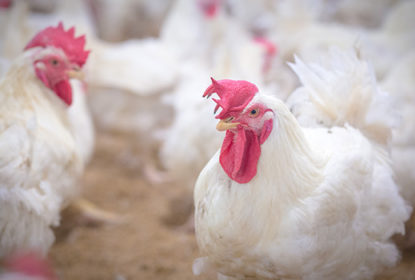
Flock welfare, Global TOP NEWS, Interviews, News, PHT GLOBAL, PHT US, Podcast, Research, TOP NEWS, Videos
... Environmental enrichments increased broiler activity in study
Nov 25, 2022Jennifer GrullonComments Off on Environmental enrichments increased broiler activity in study
Environmental enrichments in broiler houses may improve bird welfare by increasing natural behaviors, according to a University of Maryland study.... Study exposes Salmonella-contamination risks of integrated broiler production
Nov 22, 2022Jennifer GrullonComments Off on Study exposes Salmonella-contamination risks of integrated broiler production
Integrated broiler producers in Europe pose a risk of transmitting and maintaining clones of Salmonella throughout the production chain, according to researchers in Spain.
Flock welfare, Global TOP NEWS, Hatchery, Interviews, News, PHT GLOBAL, PHT US, Podcast, Research, TOP NEWS, Videos
... Study: Day length during brooding did not impact broiler performance
Oct 20, 2022Jennifer GrullonComments Off on Study: Day length during brooding did not impact broiler performance
Extended day length during the brooding period is thought to benefit broilers’ long-term performance and well-being. However, a University of Georgia study has re-evaluated that idea.... Reusing poultry litter may reduce antibiotic-resistant Salmonella
Oct 20, 2022Jennifer GrullonComments Off on Reusing poultry litter may reduce antibiotic-resistant Salmonella
Reusing poultry litter can help boost bird health and may help prevent the transfer of antibiotic-resistant Salmonella, scientists have discovered.... Breed may impact broiler response to Salmonella infection
Oct 06, 2022Jennifer GrullonComments Off on Breed may impact broiler response to Salmonella infection
Research at the University of Arkansas suggests broiler breed could affect birds’ immune response to Salmonella exposure, according to Shawna Weimer, PhD, director of the Center for Food Animal...... Replication, coverage vary among MD vaccination programs for long-lived birds
Oct 04, 2022Jennifer GrullonComments Off on Replication, coverage vary among MD vaccination programs for long-lived birds
DISCOVERIES: Marek’s disease (MD) vaccination programs for breeders and layers can vary significantly in the replication and coverage they provide, a finding that should be considered when planning...
Flock welfare, Food Safety, Global TOP NEWS, Interviews, News, PHT GLOBAL, PHT US, Podcast, Research, TOP NEWS, Videos
... Salmonella serotypes are changing — monitor which ones are in your flock
Sep 28, 2022Jennifer GrullonComments Off on Salmonella serotypes are changing — monitor which ones are in your flock
It’s imperative for poultry producers and companies to know what strains of Salmonella may be circulating in their flocks, said Chuck Hofacre, president of the Southern Poultry Research Group in...
Food Safety, Global TOP NEWS, Interviews, News, PHT GLOBAL, PHT US, Podcast, Research, TOP NEWS, Videos
... Study highlights risk of high Salmonella exposure, more persistent serotypes
Sep 10, 2022Jennifer GrullonComments Off on Study highlights risk of high Salmonella exposure, more persistent serotypes
Feed conversion takes a bigger hit in birds with higher Salmonella exposure, while Salmonella Reading outlasts other serotypes through the grow-out period, suggests new work from the University of...... Vaccine tweaks can make a big difference against key infectious bronchitis virus strain
Aug 30, 2022Jennifer GrullonComments Off on Vaccine tweaks can make a big difference against key infectious bronchitis virus strain
New challenge studies have highlighted the best vaccine serotype combinations to tackle the DMV/1639 strain of infectious bronchitis virus (IBV), which has spread from the Delmarva area to become the...... Study shows modified-live vaccine can aid fight against Salmonella Infantis
Aug 24, 2022Jennifer GrullonComments Off on Study shows modified-live vaccine can aid fight against Salmonella Infantis
New research shows that using a modified-live Salmonella Typhimurium (ST) vaccine helps protect broilers against Salmonella Infantis, the most commonly-isolated serotype in chicken parts and...... ‘Reverse genetics’ may offer new IBV vaccine targets
Aug 04, 2022Jennifer GrullonComments Off on ‘Reverse genetics’ may offer new IBV vaccine targets
Researchers at The Pirbright Institute in the UK report that a recent study provides evidence that mutations in the genetic code for non-structural proteins “offer a promising way” to make...... Greater understanding needed before new coccidiosis vaccines come to fore
Aug 03, 2022Jennifer GrullonComments Off on Greater understanding needed before new coccidiosis vaccines come to fore
The use of recombinant vaccines can prove a valuable strategy against coccidiosis in poultry, but better understanding of host-parasite interactions and gut microbiology is needed.
Flock welfare, Global TOPICS, Hatchery, Interviews, News, PHT GLOBAL, PHT US, Podcast, Research, Videos
... Light impacts behavior in cage-free aviaries
Jul 20, 2022Jennifer GrullonComments Off on Light impacts behavior in cage-free aviaries
Birds can move out of the reach of the workers’ hands in a multi-tier aviary system, so employees have to climb into the system to get to them. Researchers from Michigan State studied light...... Live vaccines are key to Salmonella-control programs — here’s why
Jul 19, 2022Jennifer GrullonComments Off on Live vaccines are key to Salmonella-control programs — here’s why
Immune responses to Salmonella infection are complex, but vaccination has become a key component of multi-step control programs. A new review of evidence to date suggests that live vaccines have...... Poulvac® Procerta® HVT-IBD-ND provides early immunity, convenience for producers
Jul 08, 2022Jennifer GrullonComments Off on Poulvac® Procerta® HVT-IBD-ND provides early immunity, convenience for producers
TOOLBOX, Issue 32: An interview with Kalen Cookson, DVM, Director of Clinical Research, Zoetis about the new recombinant vector vaccine, Poulvac Procerta HVT-IBD-ND.... Marek’s study could lead to new management strategies in poultry
Jul 06, 2022Jennifer GrullonComments Off on Marek’s study could lead to new management strategies in poultry
New research has given scientists a greater understanding of the Marek’s disease virus (MDV) that could lead to new strategies for managing the widespread, immunosuppressive disease in poultry.... Survey shows US poultry industry’s evolving yet flexible approach to coccidiosis management
Jun 13, 2022Jennifer GrullonComments Off on Survey shows US poultry industry’s evolving yet flexible approach to coccidiosis management
After years of being an afterthought in many broiler-production schemes, coccidiosis vaccines have become the cornerstone for many control programs.... Limiting E. coli transmission from hen to offspring
Jun 04, 2022Jennifer GrullonComments Off on Limiting E. coli transmission from hen to offspring
TOOLBOX: An interview with Henrik Christensen, PhD, DVSc, University of Copenhagen, on the effect of Poulvac E. coli on bird health, laying performance and hatching results.
Flock welfare, Food Safety, Global TOP NEWS, Interviews, News, PHT GLOBAL, PHT US, Podcast, Research, TOP NEWS, Videos
... ‘Competitive exclusion’ is potential benefit of live Salmonella vaccines in young birds
Jun 02, 2022Jennifer GrullonComments Off on ‘Competitive exclusion’ is potential benefit of live Salmonella vaccines in young birds
Live vaccines for Salmonella have been found to start offering protection within a few days of administration, acting “almost as a [form of] competitive exclusion,” said Chuck Hofacre, president...... Poulvac Procerta HVT-IBD offers early immunity, greater pullet uniformity in layers
Jun 01, 2022Jennifer GrullonComments Off on Poulvac Procerta HVT-IBD offers early immunity, greater pullet uniformity in layers
TOOLBOX, Issue 31: An interview with John Brown, DVM, senior technical services veterinarian, Zoetis, on the advantages of using Poulvac Procerta HVT-IBD to protect chicks throughout their lives.
Diagnostics, Flock welfare, Global TOPICS, Infectious Diseases, Interviews, News, PHT GLOBAL, PHT US, Podcast, Research, TOPICS, Videos
... Poor IBV vaccine performance in broiler study underlines need for surveillance
May 12, 2022Jennifer GrullonComments Off on Poor IBV vaccine performance in broiler study underlines need for surveillance
A whole-complex study of broiler breeders in Georgia found underwhelming infectious bronchitis vaccine performance – but with better surveillance and protocols, outcomes could be improved.... On-site PCR testing could aid smart antibiotic use in mycoplasmosis treatment
Apr 26, 2022Jennifer GrullonComments Off on On-site PCR testing could aid smart antibiotic use in mycoplasmosis treatment
Making use of polymerase chain reaction (PCR) testing on chicken farms can help tackle the problem of antibiotic overuse against mycoplasmosis in countries where this treatment approach is prevalent.... Turkey-farm study finds Salmonella Infantis prevalent
Apr 19, 2022Jennifer GrullonComments Off on Turkey-farm study finds Salmonella Infantis prevalent
Research studying Salmonella across one turkey producer’s farms found Salmonella Infantis to be by far the dominant serotype.... Interaction of modified-live and recombinant vaccines shows potential against viral diseases
Apr 06, 2022Jennifer GrullonComments Off on Interaction of modified-live and recombinant vaccines shows potential against viral diseases
Adding a modified-live vaccine (MLV) to recombinant vaccine programs against three important viral pathogens in poultry production can have a positive impact on outcomes, according to field work by...... Conventional, recombinant MD vaccination protocols compared in long-lived birds
Mar 08, 2022Jennifer GrullonComments Off on Conventional, recombinant MD vaccination protocols compared in long-lived birds
TOOLBOX, Issue 34: An interview with Eduardo Muniz, DVM, Zoetis on research comparing conventional vaccine programs versus new protocols with vectored vaccines.... E. coli vaccination reduces bacteria populations, increases antibiotic susceptibility
Mar 02, 2022Jennifer GrullonComments Off on E. coli vaccination reduces bacteria populations, increases antibiotic susceptibility
A modified-live E. coli vaccine helps reduce E. coli counts in broiler chickens and turkeys and can significantly increase susceptibility to commonly used antibiotics, according to new field...... Four-year study highlights value of vaccinating turkeys against E.coli
Feb 15, 2022Jennifer GrullonComments Off on Four-year study highlights value of vaccinating turkeys against E.coli
Vaccinating turkeys against colibacillosis with the modified-live E. coli vaccine has economic and animal welfare benefits, according to a retrospective, 4-year study conducted on 37 French turkey...... Targeted adjuvants may improve recombinant ILT vaccination immune response
Nov 02, 2021Jennifer GrullonComments Off on Targeted adjuvants may improve recombinant ILT vaccination immune response
Vaccination might be effective in controlling ILT in broilers, but recombinant vaccines might not always provide an adequate immune response, according to scientists at North Caroline State...... IBDV linked to severe necrotic enteritis in broiler chickens
Oct 10, 2021Jennifer GrullonComments Off on IBDV linked to severe necrotic enteritis in broiler chickens
Broiler chickens exposed to infectious bursal disease virus are likely to develop more severe cases of the bacterial disease, necrotic enteritis, researchers in Canada have found.... Poulvac® ST cross-protects against different Salmonella serotypes
Oct 07, 2021Jennifer GrullonComments Off on Poulvac® ST cross-protects against different Salmonella serotypes
Salmonella vaccination is a vital part of an integrated approach to reducing the Salmonella load during the broiler life cycle.... Early IBV infections in layers can increase cysts associated with false layer syndrome
Oct 05, 2021Jennifer GrullonComments Off on Early IBV infections in layers can increase cysts associated with false layer syndrome
The timing of infectious bronchitis virus (IBV) challenge in layers can impact the development of cysts associated with false layer syndrome, scientists at the University of Georgia have discovered.... 5 ways research aims to tackle poultry-sector challenges
Aug 04, 2021Jennifer GrullonComments Off on 5 ways research aims to tackle poultry-sector challenges
Novel, science-based technologies will allow the poultry industry to get ahead of issues coming towards it.... Gut microbiota changes linked to E. coli vaccination may support gut health, broiler immune response
Jul 22, 2021Jennifer GrullonComments Off on Gut microbiota changes linked to E. coli vaccination may support gut health, broiler immune response
DISCOVERIES, Issue 13: A recent study found that administering a live Escherichia coli vaccine by spray produced marked, consistent changes in the intestinal microbiota of broilers.... Study: Larger particles in starter feed lead to better performance
Jul 08, 2021Jennifer GrullonComments Off on Study: Larger particles in starter feed lead to better performance
Starter feed of larger particles consumed by young chicks is associated with better performance during the lifetime of broiler birds, according to a study conducted at Mississippi State University.
Antibiotic-free, Biosecurity, Food Safety, Global TOP NEWS, Interviews, News, PHT GLOBAL, PHT US, Podcast, Research, TOP NEWS, Videos
... Better management, biosecurity could mean lower Salmonella levels in NAE farms
Jul 03, 2021Jennifer GrullonComments Off on Better management, biosecurity could mean lower Salmonella levels in NAE farms
New research has suggested that Salmonella levels in no-antibiotics-ever (NAE) poultry systems could be lower than those on conventional broiler farms.... Temperature and air flow critical to broiler performance year-round
Jun 07, 2021Jennifer GrullonComments Off on Temperature and air flow critical to broiler performance year-round
By Michael Czarick, Engineering Specialist, University of Georgia Department of Poultry Science... E. coli vaccination in broilers: Is it worth the cost?
May 15, 2021Jennifer GrullonComments Off on E. coli vaccination in broilers: Is it worth the cost?
According to recent studies, E. coli vaccination may actually help broiler producers boost their bottom lines.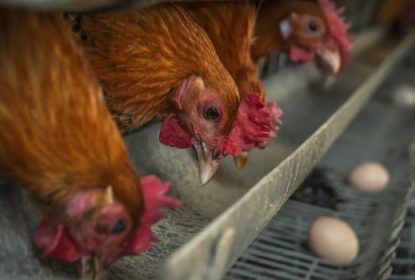
Global TOP NEWS, Infectious Diseases, Interviews, News, PHT GLOBAL, PHT US, Podcast, Research, TOP NEWS, Videos
... False layer syndrome linked to early infectious bronchitis exposure
May 14, 2021Jennifer GrullonComments Off on False layer syndrome linked to early infectious bronchitis exposure
Research is increasingly linking false layer syndrome to early exposure to infectious bronchitis virus. The condition prevents laying hens from producing eggs, but birds display few outward signs of...... NCSU: Enterococcus co-infection makes colibacillosis deadlier in poultry
Nov 12, 2020Jennifer GrullonComments Off on NCSU: Enterococcus co-infection makes colibacillosis deadlier in poultry
Researchers from North Carolina State University have found that when a particular strain of Enterococcus is found alongside E. coli in cases of avian colibacillosis, there is a higher rate of...
Flock welfare, Global TOP NEWS, Infectious Diseases, Interviews, News, PHT GLOBAL, PHT US, Podcast, Research, TOP NEWS, Videos
... Consider predominance of AL-2 variants when planning IBDV vaccination program
Nov 09, 2020Jennifer GrullonComments Off on Consider predominance of AL-2 variants when planning IBDV vaccination program
The AL-2 family of variants is the predominant strain of infectious bursal disease virus (IBDV) circulating among US broiler flocks, according to a recent survey.
Antibiotic-free, Global TOP NEWS, Gut Health, Interviews, News, PHT GLOBAL, PHT US, Podcast, Research, TOP NEWS, Videos
... Glutamine supplement shows promise in reducing necrotic enteritis
Oct 26, 2020Jennifer GrullonComments Off on Glutamine supplement shows promise in reducing necrotic enteritis
Supplementing poultry diets with glutamine could help reduce the severity of necrotic enteritis (NE), according to researchers.... Researchers decode clues to Salmonella Infantis control
Oct 05, 2020Jennifer GrullonComments Off on Researchers decode clues to Salmonella Infantis control
New research from Austria provides key regional insights into Salmonella Infantis, a foodborne pathogen that is closely linked with broiler farms and often resistant to antibiotics.... German researchers: Poultry, pigs not susceptible to COVID-19
Apr 15, 2020Jennifer GrullonComments Off on German researchers: Poultry, pigs not susceptible to COVID-19
Scientists in Germany have confirmed that pigs and chickens are not susceptible to COVID-19.... Failure of maternal antibodies to protect against E. coli infection highlights need for early protection
Feb 13, 2020Jennifer GrullonComments Off on Failure of maternal antibodies to protect against E. coli infection highlights need for early protection
New studies in broiler chicks show that maternal antibodies to Escherichia coli do not prevent infection.... Report: US poultry producers slash use of medically important antimicrobials while shifting focus to disease prevention
Aug 08, 2019Jennifer GrullonComments Off on Report: US poultry producers slash use of medically important antimicrobials while shifting focus to disease prevention
US poultry producers dramatically decreased their use of medically important antimicrobials over a 5-year period ending in 2017, according to a new report released by Randall Singer, DVM, PhD,...... Gene technology has potential to multiply vaccine benefits
May 15, 2018Jennifer GrullonComments Off on Gene technology has potential to multiply vaccine benefits
Scientists in the UK have discovered a way to modify a Marek’s disease vaccination so that it could be potentially be used to protect against a number of significant poultry diseases.... Deadly duo: Study shows link between E. maxima, Clostridium
Dec 12, 2017Jennifer GrullonComments Off on Deadly duo: Study shows link between E. maxima, Clostridium
New research by Callie McQuain, DVM, veterinarian and grad student at the University of Georgia, substantiates anecdotal field experience indicating that Eimeria maxima is the type of coccidia that...... New Marek’s test helps ensure successful vaccination, biosecurity
Oct 23, 2017Jennifer GrullonComments Off on New Marek’s test helps ensure successful vaccination, biosecurity
A new test is helping producers in Europe better protect their flocks against Marek’s disease (MD).... E. maxima linked to mortality in broilers vaccinated for coccidiosis
Oct 17, 2017Jennifer GrullonComments Off on E. maxima linked to mortality in broilers vaccinated for coccidiosis
Eimeria maxima in broilers vaccinated against coccidiosis appears to be an important cause of mortality, according to the preliminary results of a study presented at the 2017 annual meeting of the...... Optimizing diets could limit foot pad dermatitis outbreaks
Apr 27, 2017Jennifer GrullonComments Off on Optimizing diets could limit foot pad dermatitis outbreaks
Managing diets to improve litter quality could help limit incidence of foot pad dermatitis (FPD) in broiler chickens and turkeys, scientists say.... E. coli vaccine reduced colibacillosis lesions and mortality in turkeys
Feb 07, 2017Jennifer GrullonComments Off on E. coli vaccine reduced colibacillosis lesions and mortality in turkeys
A modified-live Escherichia coli vaccine for turkeys was demonstrated to be safe and effectively reduced the incidence of lesions and mortality due to colibacillosis, according to recent studies.... Early feeding, housing may affect broiler response to immune challenges
Jan 25, 2017Jennifer GrullonComments Off on Early feeding, housing may affect broiler response to immune challenges
Early feeding after hatch and the housing type can affect the response of broilers to immune challenges later in life, indicates a study from the Netherlands.... Are there practical alternatives to ionophores?
Nov 05, 2016Jennifer GrullonComments Off on Are there practical alternatives to ionophores?
Proponents of raising broilers without ionophores and other antibiotics have proposed putting more emphasis on farm management, biosecurity and alternatives to anticoccidials.... Hens in enriched colony system appear more stressed, flighty
Aug 05, 2016Jennifer GrullonComments Off on Hens in enriched colony system appear more stressed, flighty
Hens in an enriched colony system were more stressed and flighty than conventionally caged birds in a study from Mississippi State and Texas A&M Universities.... S. enteritidis shedding more frequent among hens in conventional cages
Jul 24, 2016Jennifer GrullonComments Off on S. enteritidis shedding more frequent among hens in conventional cages
Fecal shedding of Salmonella enteritidis was significantly more frequent among experimentally infected laying hens in conventional cages compared to hens housed in enriched colony cages, indicates a...... Broiler study shows challenges and potential of drug-free production
Jul 08, 2016Jennifer GrullonComments Off on Broiler study shows challenges and potential of drug-free production
Broilers raised in a drug-free program had a higher feed-conversion ratio (FCR), decreased mean daily weight and decreased mean live marketing weight despite administration of antibiotic
Global TOP NEWS, Infectious Diseases, ippe2016 - Highlights from our latest issue, News, PHT GLOBAL, Research, Respiratory
... IBD V877 vaccine can break through maternal antibodies
Apr 10, 2016Jennifer GrullonComments Off on IBD V877 vaccine can break through maternal antibodies
A live infectious bursal disease (IBD) vaccine based on the V877 strain can override maternal antibodies, doesn’t revert to virulence and has limited interactions with other live vaccines.... Canada studies find no links between ionophores, resistance of other antibiotics
Dec 29, 2015Jennifer GrullonComments Off on Canada studies find no links between ionophores, resistance of other antibiotics
One of the few studies about antibiotic resistance and ionophores in poultry was published by Canadian researchers in 2007 who found that isolates showing resistance to multiple antibiotics can be...... High stocking density predisposes broilers to NE
Sep 28, 2015Jennifer GrullonComments Off on High stocking density predisposes broilers to NE
High stocking density has adverse effects on broiler welfare and intestinal health and predisposes the birds to necrotic enteritis (NE), according to the results of an experiment conducted by...... Reducing false positives pays in ELISA mycoplasma testing
Aug 05, 2015Jennifer GrullonComments Off on Reducing false positives pays in ELISA mycoplasma testing
Poultry producers should consider specificity when selecting a Mycoplasma ELISA test to avoid costs associated with false positives.... What’s causing ‘woody breast’ in poultry?
May 28, 2015Jennifer GrullonComments Off on What’s causing ‘woody breast’ in poultry?
A condition known as “woody breast” is puzzling US poultry scientists investigating why breast-muscle tissue from some broiler flocks is hard and tough instead of tender and juicy.... Experience with GA 08 provides valuable information about IBV variants in poultry
May 08, 2015Jennifer GrullonComments Off on Experience with GA 08 provides valuable information about IBV variants in poultry
Experience with Georgia 2008 (GA 08) — the infectious bronchitis variant that’s caused major economic losses for poultry producers in the Southeast — has provided valuable information that will...... What’s left if we lose antibiotics?
Apr 20, 2015Jennifer GrullonComments Off on What’s left if we lose antibiotics?
Bacterial resistance is developing quickly and many critically important drugs risk becoming obsolete. Disastrous consequences lie in wait therefore unless these drugs are used prudently.... Broiler chicks show less tendon swelling, weight suppression in reovirus vaccine study
Apr 02, 2015Jennifer GrullonComments Off on Broiler chicks show less tendon swelling, weight suppression in reovirus vaccine study
A recent study showed that broiler chicks receiving higher reovirus antibody levels from conventionally vaccinated hens had a lower incidence of tendon swelling and were protected from weight...... Administration of a Salmonella Enteritidis to newly hatched broilers reduces colonisation and shedding of a Salmonella Enteritidis challenge strain
Mar 18, 2015Jennifer GrullonComments Off on Administration of a Salmonella Enteritidis to newly hatched broilers reduces colonisation and shedding of a Salmonella Enteritidis challenge strain
A new study in Belgium has revealed a strain of Salmonella Enteritidis which showed some promise to help reduce food-borne infections when given to chicks in the drinking water and was even more...... Isolation of Campylobacter from the circulating blood of broilers
Feb 26, 2015Jennifer GrullonComments Off on Isolation of Campylobacter from the circulating blood of broilers
From a poultry processing viewpoint, Campylobacter presence in circulating blood of market-age broilers may increase the likelihood of cross-contamination between birds during slaughter.... Poultry research showcased at SCAD: students shine
Feb 24, 2015Jennifer GrullonComments Off on Poultry research showcased at SCAD: students shine
Mark Jackwood, PhD, University of Georgia talks about the recent Southern Conference of Avian Diseases (SCAD) and its significance to the poultry industry.... Reduce odor from manure with free online tool
Feb 13, 2015Jennifer GrullonComments Off on Reduce odor from manure with free online tool
A team of Iowa State University (ISU) Extension and Outreach specialists have developed an online tool to help livestock and poultry producers compare odor mitigation techniques that could be useful...... Frequent Application of Litter Amendments in Broiler Houses During Grow-out on Bird Health, Production and Environment
Jan 28, 2015Jennifer GrullonComments Off on Frequent Application of Litter Amendments in Broiler Houses During Grow-out on Bird Health, Production and Environment
A series of experiments at the University of Delaware show that frequent application of sodium bisulphate improved broiler production performance and foot pad quality and reduced ammonia emissions...... Sericea lespedeza found ineffective for coccidiosis control in chickens
Jan 22, 2015Jennifer GrullonComments Off on Sericea lespedeza found ineffective for coccidiosis control in chickens
Sericea lespedeza (SL), a warm-season legume shown to help control coccidiosis in lambs, had no anticoccidial activity in chickens, according to a study conducted at the University of Arkansas.... Field trials show practical, economic benefits of E. coli vaccine in broilers
Nov 13, 2014Jennifer GrullonComments Off on Field trials show practical, economic benefits of E. coli vaccine in broilers
Recent studies on two continents have demonstrated that a modified-live vaccine reduced losses from Escherichia coli in broilers, even when the disease challenge was strong.... Antibiotic resistance revisited in recent media reports
May 27, 2014Jennifer GrullonComments Off on Antibiotic resistance revisited in recent media reports
Following the April 2014 World Health Organization (WHO) report warning of a “post-antibiotic era,” Current Biology published the findings of a new study on May 19, reports Influence Feed.... Supplemental bacitracin reduces mortality, C. perfringens in broilers
Apr 17, 2014Jennifer GrullonComments Off on Supplemental bacitracin reduces mortality, C. perfringens in broilers
Commercial broilers that received a bacitracin-supplemented diet had less Clostridium perfringens in their gut, according to researchers at Ohio State University.... Methods of diagnosing enteric disease clarified
Jan 15, 2014Jennifer GrullonComments Off on Methods of diagnosing enteric disease clarified
Diagnosing clostridial enteric disease in poultry remains a challenge — primarily because many clostridial species can be a normal inhabitant of the gut, which makes it difficult to determine their...... Single dose of Poulvac IBMM+Ark protects long-lived broilers for at least 9 weeks
Jan 15, 2014Jennifer GrullonComments Off on Single dose of Poulvac IBMM+Ark protects long-lived broilers for at least 9 weeks
One dose of the live, attenuated vaccine Poulvac® IBMM+Ark effectively protected broilers against two infectious bronchitis (IB) strains for at least 9 weeks, a recent study shows.... Organic raw poultry not necessarily safer
Jan 15, 2014Jennifer GrullonComments Off on Organic raw poultry not necessarily safer
Organic raw poultry is not necessarily safer for consumption than conventionally raised poultry, indicates a study from the University of Tennessee.... Research review: What’s new in poultry housing and equipment?
Jan 03, 2014Jennifer GrullonComments Off on Research review: What’s new in poultry housing and equipment?
With animal welfare and the environmental aspects of food animal farming gaining more attention from the public and high feed prices focusing efforts on getting the best performance from poultry,...


